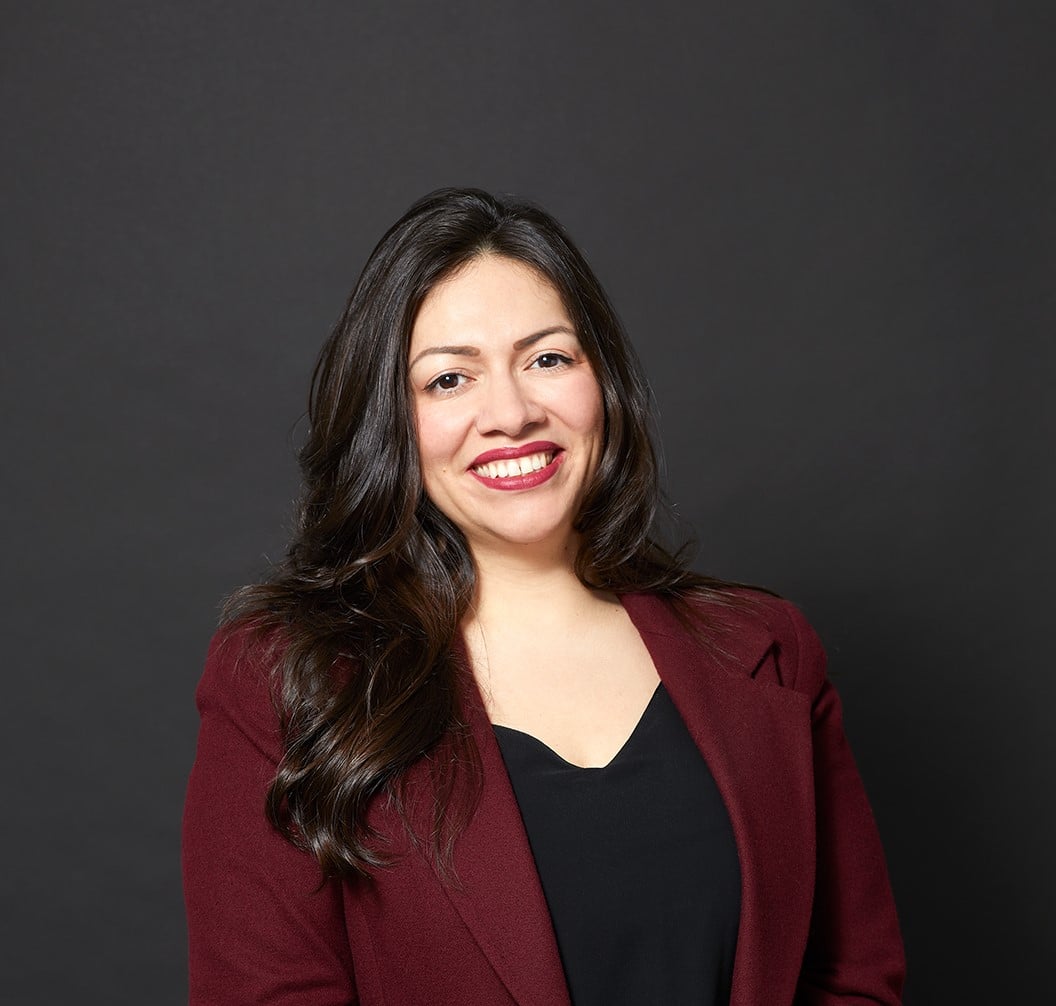Each month, we look forward to featuring members of the Ironclad community who are changing the legal industry for the better. This time, we’re excited to introduce you to Jacqueline Rodriguez, Senior Manager of Legal Operations at NS1.
Jacqueline jumpstarted the legal ops function at NS1. Her approach is guided by considerations for neurodiversity and change management to create solutions that not only stick but truly work for all. She has a knack for facilitating cross-functional alignment, and thanks to Ironclad, has uncovered a passion for legal engineering.
She’s currently leveraging her experience to support NS1’s mission to help its customers build a better future through connecting applications and the world’s audiences. She also enjoys playing trivia, riding her Vespa, and took up Star Trek: The Next Generation during the pandemic in lieu of her favorite pastime, exploration abroad.
Thanks for joining us for a Q&A, Jacqueline!
How did you work your way into legal?
My career began as a teenager, almost 20 years ago!
Raquel Romero—a phenomenal, sole practitioner—took me on at the age of 16 and ramped me up pretty quickly to become her lead paralegal. We worked together through my time at Rutgers and even occasionally thereafter on some unique assignments. Following undergrad, I went into big law for 3 years, and ever since I’ve been in-house (at multinationals and now in tech), with each new employer being in a completely different industry than the last. The thread they’ve all had in common was that they were leading companies in their sectors with wholly distinct organizational cultures.
It’s been my current post at NS1, building the legal ops function, that has formally brought me into the ops sphere. Our forward-thinking CLO, Salil Jani, recognized the productivity that this role could unlock by having an operational lead take control of the process, project, knowledge, and contract management of the department.
You’ve worked at some great global brands. What are some key learnings you have from leading legal ops at those companies?
The North American legal team at Kuehne+Nagel embodied the lesson of leading by example. This manifested in our top-notch “internal” customer service and our championing of the cultural transformation began during my time there.
At NS1, I’m witnessing the power of inclusion as a key differentiator and learning first-hand how directly empowerment impacts innovation.
When did you realize, “Hey, legal ops is a thing?”
The traditional roles of our industry can be limited, and if you didn’t go to law school, even more so. Though I typically joined teams as a “paralegal,” my contributions were so diverse in each setting that the title itself not only felt vague but inadequate for capturing the operational competencies in which I specialized.
Learning of the term through CLOC’s work blew my world open! My professional history suddenly clicked together, and I realized that this was the discipline I had really been cultivating all along. It amplified the potential of what my career could become.
What’s the best thing about your job?
Getting to the heart of an issue and resolving inefficiencies + pain points are the most immediately gratifying parts of my job—it keeps me engaged and looking out for the next challenge to conquer.
Even more fulfilling, however, is building inclusive working relationships across functional teams—what I think of as growing social capital. It engenders goodwill, resulting in more trustful and efficient collaboration. Because we support every part of the business, legal members have ample opportunity to be organizational culture bearers. It’s something I wholeheartedly embrace as a duty.
What’s the most surprising thing about working in legal operations?
At its core, it’s an innovative and multidisciplinary function. We specialize in listening, analyzing, problem-solving, restructuring, advocating, and designing for user experience. It also demands that we become skilled at building consensus, to facilitate alignment in a new shared direction. Our practice of continuous improvement requires that we become effective agents of change.
How are you adjusting to remote work? Any tips or tricks to balancing personal and work-life balance now more than ever?
It’s been a seamless transition. Our staff was fairly distributed even before the pandemic, and since the nature of our work is virtual, there’s been little change to how I work—only where I’m doing it. As a builder and analyst, there’s been nothing but upsides to working uninterrupted! To the credit of my company and team, our strong culture of camaraderie has been a salve during these “distanced” times; I’m continuously impressed by the ways we show up for each other, even when some of us have only met through a robust Slack channel (looking at you #dogs-n-such 😻)! That said, there are some personal habits that have served our work well during this time: prompt acknowledgment of requests and going the extra mile when communicating so that our internal clients have a clear understanding of their next steps. Responsiveness, clarity, and consistency… these are the building blocks of trust!
As far as the balance, unless you’re in a position to draw boundaries around your time, so much of that is dependent on modeling by management. I’m learning that self-care is more than a tagline at NS1, it’s part of how we support one another and is regularly encouraged at all levels. My tendency is to serve during the traditional EST work hours, during which I hold myself to pretty strict SLAs (old habits die hard!)—this allows me to really sign off at the end of the day. In-kind, I respect my colleagues’ free time; observe their time zones or flex work schedules; and avoid off-hour pings when an email would suffice.
How do you drive adoption of the various tools in your tech stack?
Step one is to align with stakeholders through active listening; we must understand the context and need that the technology will be addressing.
I would then offer a few approaches that integrated the tool to solicit feedback and refine the process. Clearly demonstrating how a tool will create efficiencies and ensuring that all parties feel heard during development lays the groundwork for buy-in and implementation.
How has the industry changed since you started?
It awoke. When legal ops was defined and raised to the industry’s consciousness through the advocacy of our pioneers, a richer path forward for paralegals and JDs alike was forged. With it came new opportunities for technical specialization and expanded avenues for leadership. It has driven so much value and efficiency for those organizations that understood its potential.
If you weren’t in legal operations, what would you do for a career?
As a lifelong learner, I think I would have made a happy cultural anthropologist.
Do you have a mentor or mentor someone? What advice do you have to find one?
I haven’t had a formal mentor, per se, but have regarded all of my managers and many of my colleagues as such.
I’ve been fortunate to have crossed paths with many different role models and personalities that have shaped my work ethic and leadership style (grateful to my mother, Raquel Romero, Marcela Fuentes, Todd Galante, Stephen Savarese, Nadine Jones, Dan Osterberg, and Salil Jani, to name a few key influences). I also accept every challenge as a teacher and strive to understand the lessons of my difficult experiences.
On the flip side of that, I’m very generous with my hard-earned wisdom and love to exchange perspectives with others, in and outside the office. In terms of advice, I really like what Jacqueline Cuevas suggested in last month’s article and am planning to approach someone whose skillset I admire with an invitation to engage in a reciprocal mentorship… to be continued!
Is there a quote that motivates you?
There are so many that resonate from E.F. Schumacher, but in short:
“Any intelligent fool can make things bigger, more complex, and more violent. It takes a touch of genius—and a lot of courage—to move in the opposite direction.”
What’s the best place you’ve traveled to?
I’m in love with Mendoza, Argentina. The area is famous for its vineyards, lovely natural settings, and relaxed pace of life. It has a vibrant culture, great dining, gorgeous architecture, and outdoor adventure (in one trip I skydived, rode horseback in the Andes, and was shooed back across country lines by border patrol).
You can only listen to one song on repeat for the rest of your life. What do you choose?
This is such a tough call! Let’s go with “Greetings” by Joni Haastrup. It’s versatile and upbeat, maintaining a steady groove while being punctuated by the piercing quality of his voice. It sounds like a call to action.
Interested in being featured in our next spotlight? Get in touch with us at newsletter@ironcladhq.com!
Ironclad is not a law firm, and this post does not constitute or contain legal advice. To evaluate the accuracy, sufficiency, or reliability of the ideas and guidance reflected here, or the applicability of these materials to your business, you should consult with a licensed attorney. Use of and access to any of the resources contained within Ironclad’s site do not create an attorney-client relationship between the user and Ironclad.




